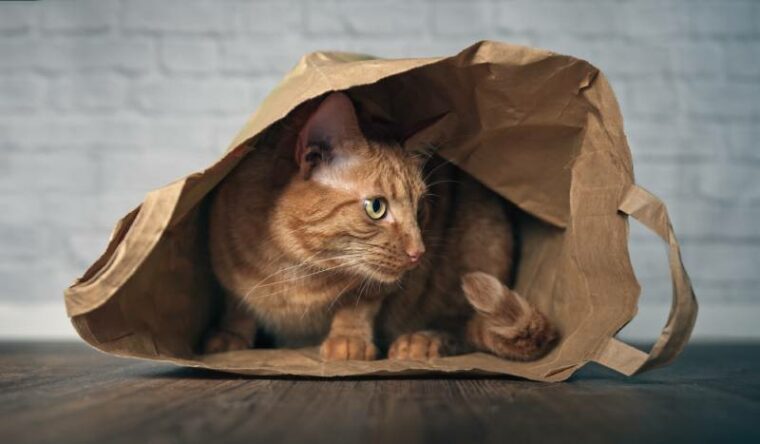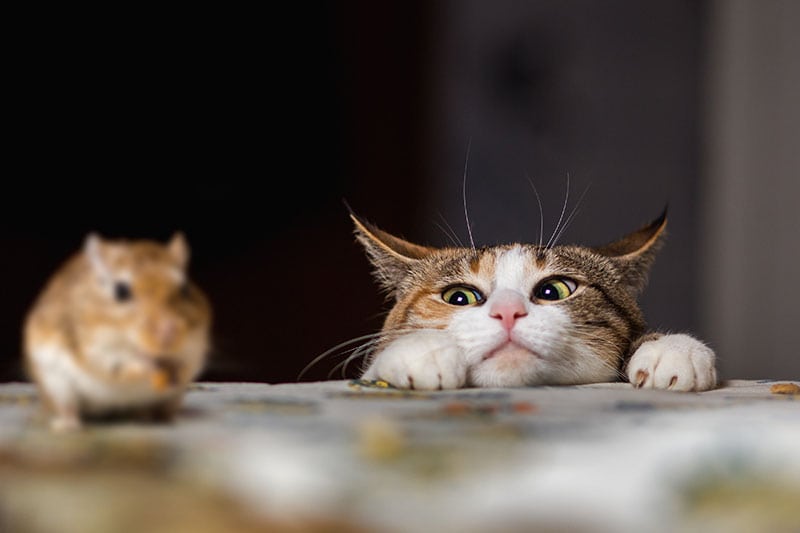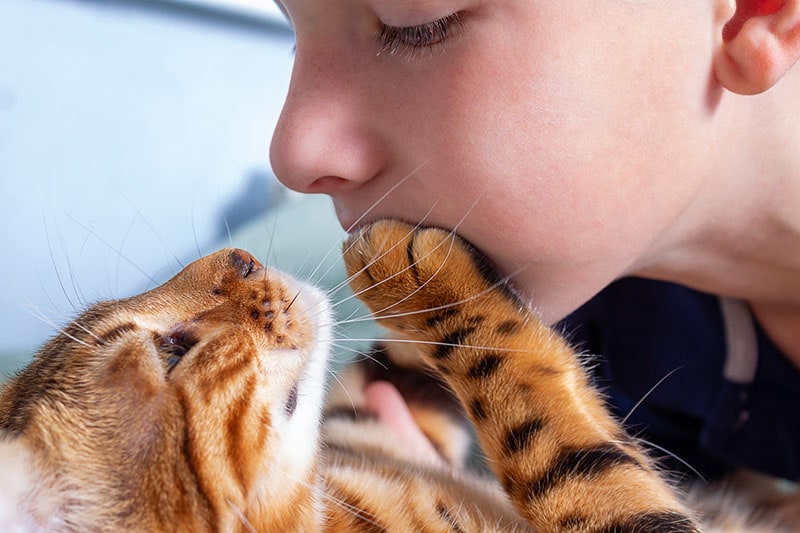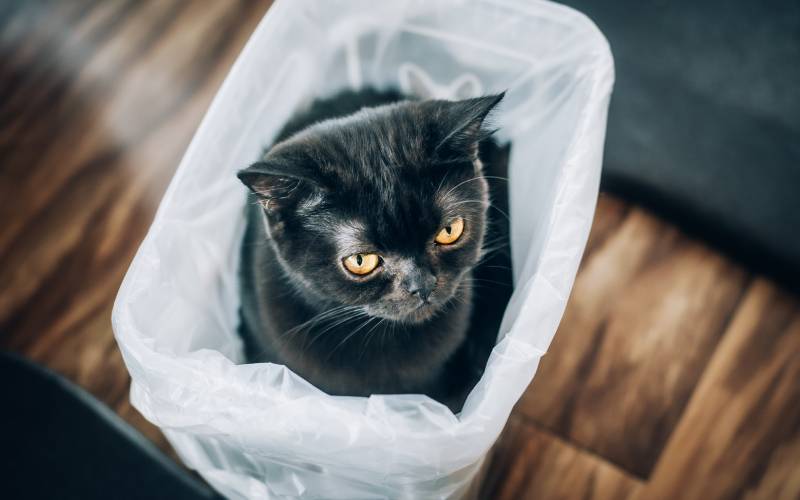
One of the most valuable parts of owning a cat is that they are fellow mammals with unique personalities. Not unlike us, cats can have their likes and dislikes and it’s interesting to peer into their world and find out more about how they think.
The hearing range of a domesticated cat is one of the broadest amongst all mammals. A cat’s hearing capabilities extend from 48 Hz to 85 kHz.
You may be wondering what kinds of sounds cats enjoy; while certain sounds may not be a one-size-fits-all preference since they each have their unique taste, there are some sounds our feline companions are sure to love. We’ve compiled a list of 10 sounds your cat is bound to enjoy.
The 10 Sounds Cats Love
1. Sounds of Other Cats
It may be no surprise that cats enjoy sounds made by their own kind. Cats have many ways of communicating with each other and with their humans. Cats have a wide variety of vocalizations they use to get their point across.
2. Sounds Made by Prey
Hearing prey can be music to a cat’s ears. Cats are natural hunters, and these instincts are hard-wired into them. Domesticated indoor cats have the luxury of hunting for entertainment and fun rather than survival but when they hear prey, it kicks in these instincts and gets them excited for the hunt. Whether it be the pitter-patter of little rodent feet or their unmistakable squeaks, birds chirping or flapping their wings, or even the sound of some insects, it’s bound to be an enticing sound for your cat to hear.

3. Higher-Pitched Human Voices
Both scientists and veterinarians have observed and concluded that cats prefer and respond better to higher-pitched human voices. As a result, they tend to prefer women’s voices over men’s voices. When cats communicate with humans, they typically use the high-pitched meow to get their point across, which makes sense considering their preference for higher-pitched voices.
4. Long Vowel Sounds
Have you ever noticed that most cats tend to respond positively and enthusiastically when you say “kitty, kitty, kitty?” Some cats will respond much more effectively to being called “kitty” as opposed to their real name. There is a reason behind this, though. Scientific studies have shown that cats prefer the long vowel sounds, especially the long e-vowel as heard in the word kitty. Some people may even recommend naming your cat something ending in the “ee” sound.

5. Opening of a Tin Can
This one may leave no room for wonder. Cats love the sound of a tin can opening because this means feeding time. Our feline friends love their wet food and will undoubtedly come running to this sound.
6. Bag Rustling
The rustling of a bag can also be a favorite sound for cats as it may represent playtime. While it can signify the cat food bag opening for some, the sounds of plastic or paper rustling together can interest and excite your cat as well for fun good old-fashioned roughhousing. Whether it be related to dinner time or play, you can expect an overall good reaction to this sound.

7. Sounds Made by Toys
Cat toys are made specifically to entice your cat and get them in the mood for play. Whether it be squeakers that imitate pretty and help them home in on their natural hunting techniques or the interesting sounds of bells or shakers; cat toys will typically get a good reaction.
8. Nature Sounds
Like how sounds from nature calming and relaxing effects on human beings can have, it can do the same for cats. The sound of light rain, water, or just the sounds of natural life existing around them can be enjoyable and peaceful for cats.

9. Classical Music
At the University of Lisbon in Portugal, scientists performed a study that determined cats can feel calm and relaxed or anxious and stressed depending on the genre of music they are listening to.
Classical music took the cake for being the favorite amongst the test subjects. It lowered the cats’ heart rate and decreased their pupil diameters, which indicates the cats were calmed by the music.
Since cats have an exceptional sense of hearing and their whiskers are extremely sensitive to vibrations in the air, they can find some forms of music to be stressful. In the same study, scientists confirmed that heavy metal and rock music increased their heart rate and the diameter of their pupils.
10. Cat-Specific Music
More recent research performed at Louisiana State University discovered that playing music specially designed for cats can help calm their nerves while going through the stress of a visit to the veterinarian. Some other studies have been performed on cats listening to cat-specific music with incredible results.
This kind of music is based on typical, positively associated cat vocalizations, such as purring and suckling sounds and frequencies within their vocal range, which is two octaves higher than that of humans.
In one of these studies, the cats that were listening to the music turned in their direction and rubbed against the speakers while purring.

Summary
An important thing to keep in mind is that each cat is an individual with a distinct personality, likes, and dislikes. While most of these sounds are generally well-received by cats, they may not have that effect on all cats. For example, some cats may be more fearful than others and could be startled by the sounds of toys or rustling bags. Some cats have even become stressed by having bells on their collars and have hidden in fear.
It’s interesting to learn just how amazing our cats are with their well-developed hearing and personal preferences. We, humans, are lucky to have the opportunity to share our homes and lives with such sentient little animals.
Related Reads:
Featured Image Credit: Lightspruch, Shutterstock






